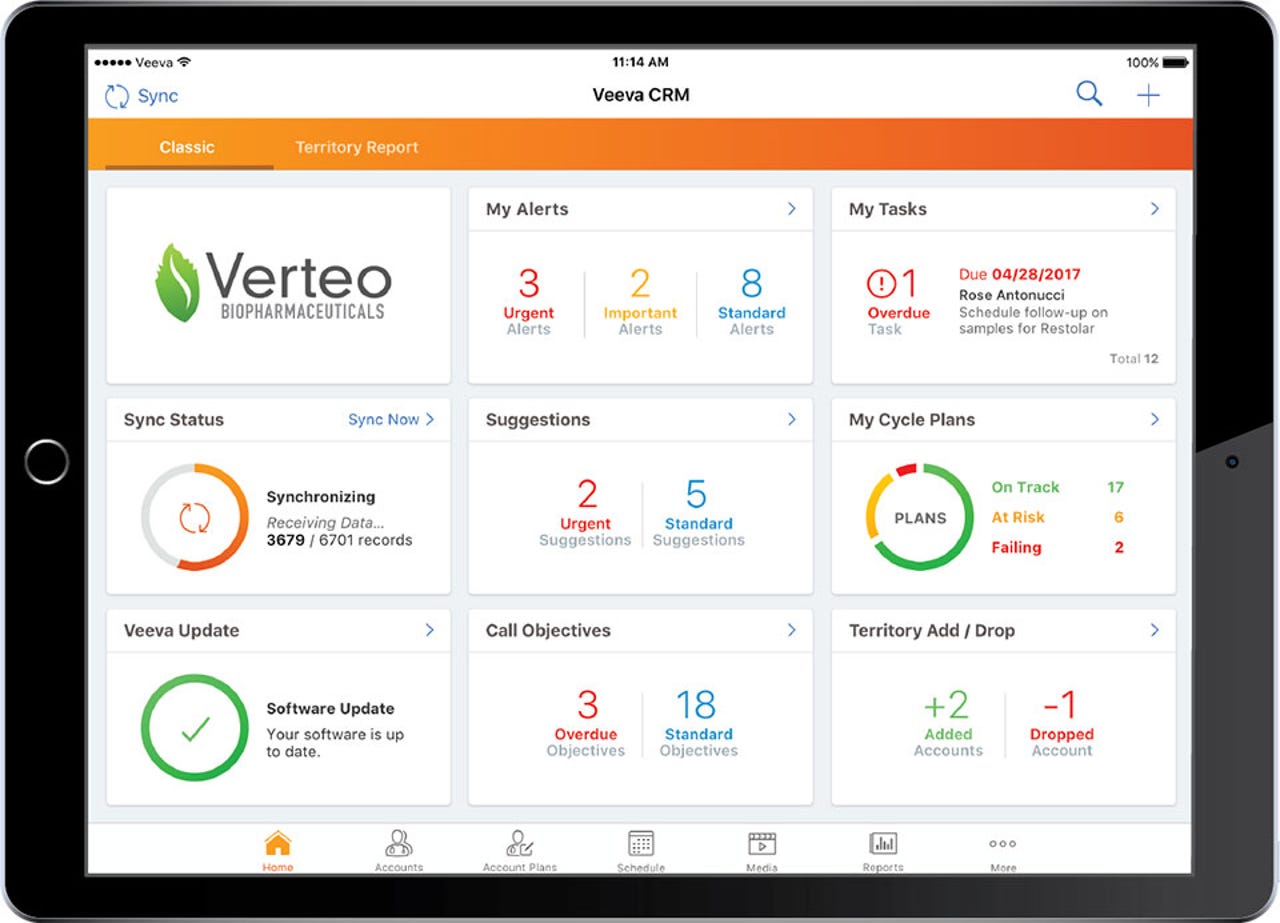Veeva's master plan: Bring cloud data warehouse and then AI to life sciences


Featured
Life sciences cloud provider Veeva is betting that it can pave the way for more artificial intelligence in health care via its next-generation data warehouse called Nitro.
Veeva, the poster child for vertical-focused cloud players, reported strong first quarter results last week. The company reported first quarter earnings of $44.3 million, or 29 cents a share, on revenue of $195.5 million, up 22 percent from a year ago. Non-GAAP earnings were 33 cents a share.
The company also raised its outlook for the second quarter and fiscal 2019. Veeva projected second quarter revenue to be between $203 million and $204 million with non-GAAP earnings of 33 cents a share to 34 cents a share. For fiscal 2019, Veeva is projecting non-GAAP earnings of $1.36 a share and $1.38 a share on revenue between $826 million and $830 million.
While Veeva's results were a key topic on the company's earnings conference call much of the focus revolved around Nitro, the data warehouse announced May 15.
More data warehouse: Network Effect: The drive for synchronicity shakes the foundations of the data warehouse | Beachhead: A new alliance makes a daring charge on the data warehouse | Snowflake raises $263.5 million for cloud data warehouse conquest | AWS Schema Tool allows you to export Oracle and Teradata warehouses to Amazon Redshift
Nitro is a life sciences focused data warehouse that's aligned with Veeva's other key applications such as customer relationship management. The idea is that Nitro will have connectors to other tools and eliminate the need for a custom data warehouse. That more nimble cloud approach paves the way for AI in life sciences to become more of the norm.
What's also worth noting is that Nitro is using Amazon Web Services Redshift as its base and then Veeva is developing from there. CEO Peter Gassner outlined the Nitro potential:
Nitro has the potential to eliminate another major custom system that has been a real burden for our customers. It also sets up customers to fully leverage the power of AI as they look ahead. Today, life sciences companies largely build and maintain their own custom data warehouses for the commercial side of the business. It's a significant challenge and often repeated on a region-by-region basis. First, it's hard to find the right resources to build and maintain a data warehouse. Once developed, these point-in-time systems quickly fall behind and they end up being replaced every 5 years or so.
And most were built for business intelligence and reporting only. So they don't provide the right foundation to support AI. It's similar in many ways to what we saw with CRM 10 years ago or content management 5 years ago in that the market is not being served well with any packaged cloud solution. So customers are having to piece things together themselves.
Indeed, life sciences and health care are littered with cumbersome systems that are hard to manage and custom built. The bet is that Veeva can offer a prebuilt data model and connectors to data sources so analytics can go beyond regional to global and cover analytics and ultimately AI.
Nitro is available in Japan for early adopters and then rolling out to North America by the end of 2018. Gassner added that Nitro will support life sciences AI companies like Aktana and ZS. At first, Nitro will primarily be integrated with Veeva CRM, but also connect to other data sources and systems. Nitro will also get an AI engine in late 2019.
Veeva has managed to grow at a 20 percent or more clip or multiple quarters. The company's approach is also to start with early adopters and co-develop for one or two years. From there Veeva scales its software.
Following that model, CFO Timothy Cabral reckoned that Nitro won't materially support revenue growth until post 2020.
Veeva argues that the data warehousing space can be as big as CRM. In life sciences, Veeva is also betting that old data warehousing and databases will be swapped out for cloud-first efforts. What Veeva really needs to happen is that life sciences will forgo the cobbled-together systems approach.
For now, Gassner said the Nitro focus revolves around getting the technology right. Early use cases will likely revolve around measuring and managing sales and marketing productivity.
Bottom line: Veeva is worth watching since its focus makes it a valuable company and one likely to be a takeout target for a larger enterprise cloud player such as Oracle or Salesforce.
Related stories
- Cloud v. Data Center: Key trends for IT decision-makers
- Infographic: Cloud use is growing, but the data center isn't dead yet
- Has IT's default setting switched from data center to cloud?
- Understanding the pros and cons of five different cloud types
- Multi-cloud is a messy reality, but there's hope
- Six reasons why companies hang on to their data centers
- Five major pitfalls to avoid in a cloud migration
- How hybrid cloud is strengthening Fitness First